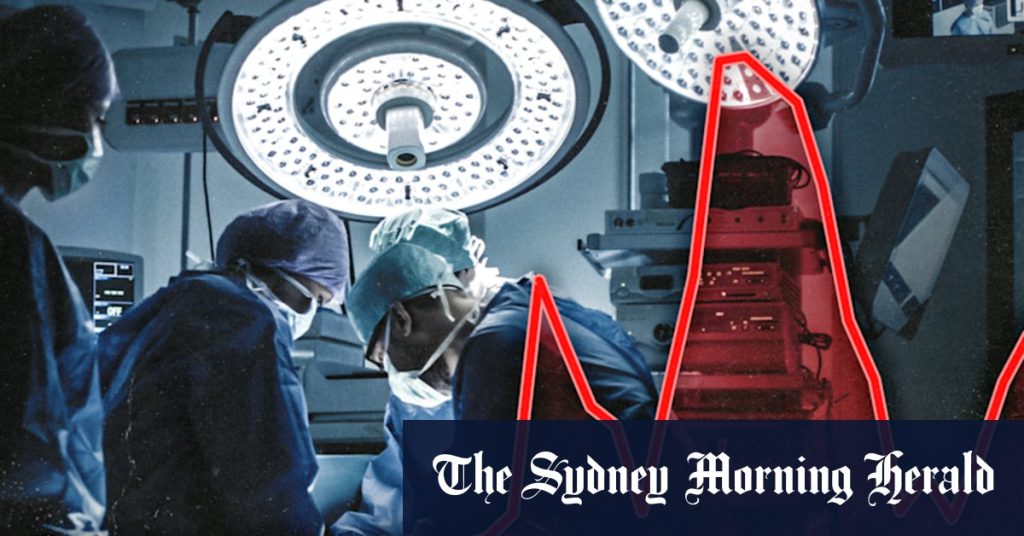Summarizing the Content: NSW Government Investing in Surgical Capacity
1. Government Investment in Surgical Capacity:
The NSW government has announced targeted funding to help surgical waiting lists and improve hospital capacity. The plan is to increase surgical operations by 25% over the next year, aiming to address a 7.5% surge in elective surgeries performed in the past year. With 225,770 surgeries completed in the past 12 months, demand for elective surgeries in NSW has elevated, highlighting the need for immediate support.
2. Fund分配 and Pollution:
Opposition health spokesperson Kellie Sloane described the investment as a "help clinician without epidemic containment," comparing it to "废工减料." The previous Coalition government spent $408 million to address COVID-19 waiting lists, and now the government is investing further to boost hospital capacity and speed recovery efforts. The combined funds of $200 million will be augmented to prepare for a more efficient healthcare system in the coming months.
3. surgeon Performance and Expectations:
Dr. Fred Betros, the Vice-President of the Australian Medical Association NSW, emphasized that while surgeon performance remained strong, there were shifts in patient demand. From January to March, NSW surgeons extended 1800 additional surgeries, yet this was not enough to keep up with growing patient numbers due to an aging population and chronic illness. Betros.Track the implications of this trend, noting the higher mí of the population for chronic diseases and complications.
4. Argumentative Shadows:
The final report from the 18-month inquiry into NSW health funding warned that the system may face overwhelm with-operation预约 too, implying that delays will continue. The number of patients overdue for surgery went from approximately 18,000 during the pandemic to fewer than 2,000 by the end of last year, despite efforts to extend operating theatre hours and outsource surgeries.
5. SIDING WITH PATIENTS:
Dr. Amanda Cohn, a Greens MLC and former GP, mentioned that many hospitals, including Sydney’s Westmead and RoyalPrinceAlfred (RPA) hospitals, have been hiding true waitlist progress. Some hospitals are refusing to add urgent "category 1" patients to waitlists unless they can guarantee an available operating theatre session within 30 days. This makes it hard for patients to understand the urgency of their surgery requests.
6. Medical Discrapinary and Improvements:
Dr. Rachael Gill pointed out that urgent care Clinics were welcomed, but the number of seriously unwell patients visiting Emergency Departments (EDs) remained at an already reduced level. There have been significant reductions in semi-urgent and nonurgent patient visits, potentially reflecting a growing need for urgent care care in emergency settings. The findings from an assessment of this trend highlight continued challenges in improving the quality and accessibility of emergency care.
Conclusion:
The常委, NSW government’s decision to invest $23 million in 2024 to address surgical waitlists and improve hospital capacity underscores the importance of urgent and effective efforts from both the government and healthcare providers. Sewage systems, as任何一个政府面临的 daunting challenge, often fail to address the systemic limitations of a inefficient and unprepared care system. Moving forward, both the role of the government and the healthcare sector will play critical roles in helping to secure the optimal number of patients, ensuring access to the care they need, and advancing the fight against the pandemic.

